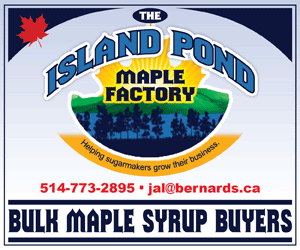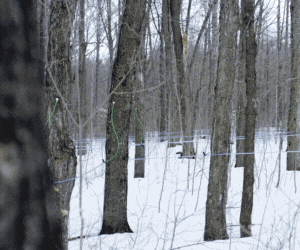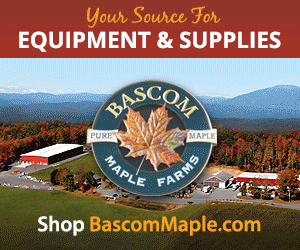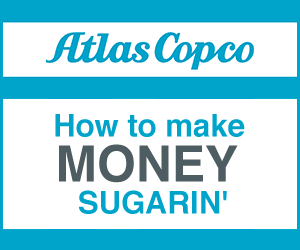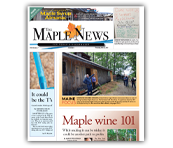BACK TO HOME
Food Safety & Gov't Regulations
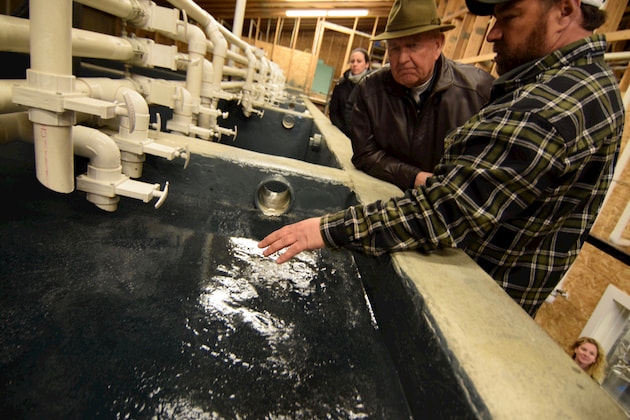
Maple producers are added to the $16 billion CFAP program
Peter Gregg | August 16, 2020
WESTFORD, Vt.—Emergency coronavirus relief funds are now available for maple producers, beginning Monday Aug. 17.
The $16 billion Coronavirus Food Assistance Program (CFAP) administered by the USDA provides direct relief to producers who faced price declines and additional marketing costs due to COVID-19.
Nearly 60 additional commodities were announced by the USDA on August 11, including the addition of what the USDA has classified in their wording as “maple sap (for maple syrup).”
Allison Hope of the Vermont Maple Sugar Makers Association said last week she is seeking clarification on the odd wording. [ MORE ]
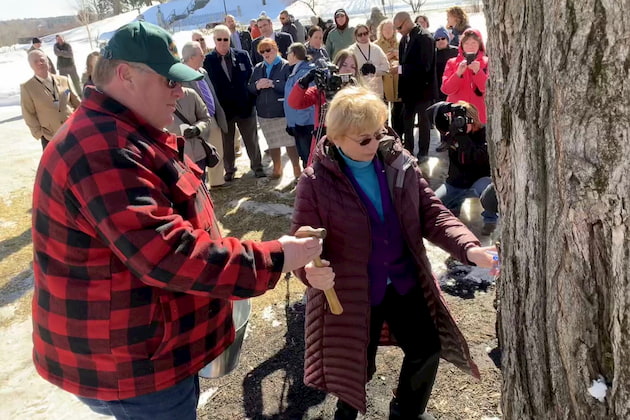
Maine's governor calls out USDA for omitting maple from CFAP
Peter Gregg | June 23, 2020
AUGUSTA, Maine— Gov. Janet Mills on Tuesday called out the USDA for failing to designate maple syrup as an eligible crop in the $19 billion Coronavirus Food Assistance Program.
“The COVID-19 pandemic has been especially difficult for Maine’s approximately 557 maple syrup producers,” the governor said on Tuesday.
Sugarmakers in the U.S. are currently ineligible for CFAP despite the industry suffering COVID-19 losses including price drops, annual event cancellations like Maine Maple Sunday and restaurant closures. The food service sector has also dried up.
The CFAP program provides direct cash payments of up to $250,000 to farmers affected by the coronavirus pandemic. For example, USDA says U.S. dairy producers received nearly $667 million in direct payments through CFAP as of June 15.
Specialty crops as obscure as rhubarb and taro have been included in the CFAP program. The USDA has shut out other commodities besides maple but said it would reconsider “if credible evidence is provided that supports a five percent price decline,” the agency said.
[ MORE ]
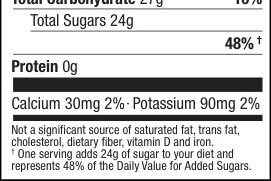
Sugarmakers not out of the woods on FDA 'added sugar' label change
Peter Gregg | April 27, 2020
MIDDLEBURY, Vt.—Sugarmakers are not out of the woods on the controversial added sugar issue.
The U.S. Food & Drug Administration is still deliberating new nutritional labels for pure maple syrup.
While the labels will not specifically force sugarmakers to make a false claim that the product somehow has ‘added sugars’ as originally proposed last year, the label still may state that syrup will be an added sugar to the amount of recommended sugar intake in consumers’ total diet.
[ MORE ]
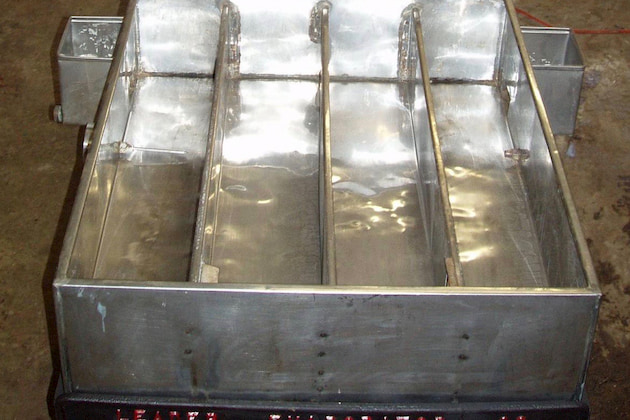
Lead equipment ban for small producers nears
Peter Gregg | February 20, 2020
ALSTEAD, N.H.—Last chance to get the lead out.
Small scale sugarmakers must have nearly all lead equipment out of the production process this season if they plan to sell their syrup to a bulk buyer. And all the rest of their lead equipmnet must be scrapped by October, the last wave of compliance with state of California regulators who sued syrup packers six years ago for not meeting stringent lead-free standards.
“The industry needs to be compliant,” said Ray Bonenberg of Mapleside Sugar Bush in Pembroke, Ont. and past-president of the International Maple Syrup Institute which has been helping educate producers on the issue.
Sugarmakers with 10,000 taps or less must get even the smallest piece of lead-laced equipment out of the sugarhouse if they plan to sell any syrup to a wholesale buyer this spring. [ MORE ]
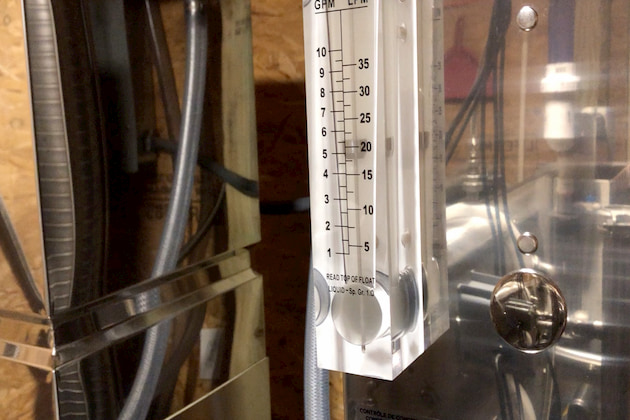
Wisconsin regulators target RO 'wastewater'
Stan Maddux | February 7, 2020
MADISON, Wis.—The discharge water from reverse osmosis machines maple syrup makers use in Wisconsin will have to pass a test for them to keep making liquid gold.
A proposal requiring sugarmakers to obtain a state-issued permit for RO discharge will be reviewed for possible revisions before taking effect in February of 2021, said Michelle Balk, basin supervisor for the Wisconsin Department of Natural Resources in Spooner who is involved with the DNR’s waste water program for the northwest part of the state.
It’s the solvents in the water used to clean reverse osmosis machines the DNR wants to make sure doesn’t pose a threat to groundwater or lakes and streams when released onto the ground.
A public comment period on the proposal ends February 13. [ MORE ]
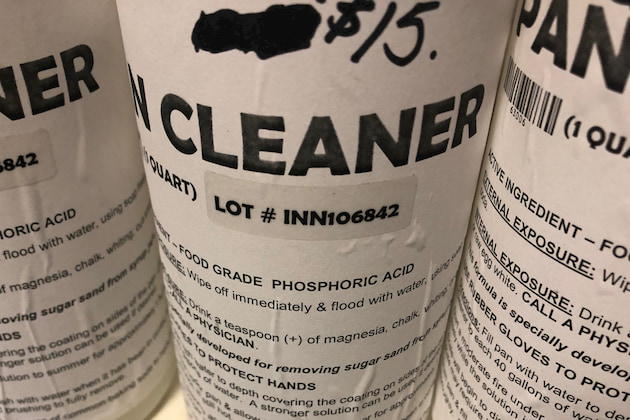
Vt. inspectors researching pan cleaner runoff
Peter Gregg | March 26, 2019
MONTPELIER, Vt.—Vermont regulators are targeting sugarhouses as their next jurisdiction of water protection rules.
“We will be going going around collecting data and finding out the levels of concentration coming out of the waste at sugarhouses,” said Patrick Fry, Agricultural Engineer, Vermont Agency of Agriculture, Food, & Markets (VAAFM).
Fry said he won’t be writing the laws but will be making recommendations to the rule makers that do.
“I’m going to be talking about ways they can be alleviating concerns that I personally have,” Fry said. He was a featured speaker at the Vermont Maple Schools in January.
At issue is the so-called “waste” Fry says is coming out of the big-time sugarhouses in the state and making its way into major waterways like Lake Champlain, Lake Memphremagog, the Connecticut River, Lake Carmi and other water sources.
Fry claims that the biggest culprit is pure phosphorus from pan cleaners mixing in with the permeate discharge which then merges into a channel and makes its way directly into those water bodies. [ MORE ]
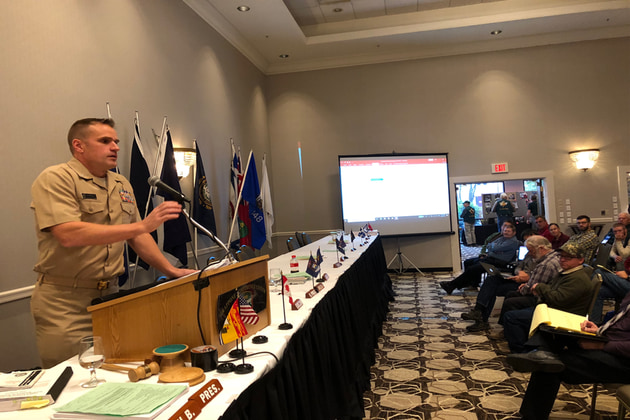
FDA official calms fears about inspections
Peter Gregg | January 25, 2019
CONCORD, N.H.—The FDA may be getting “defriended” by sugarmakers.
Sugarmakers who registered their operations with the FDA, some of who did so as early as 2003, can unregister themselves if half or more of their gross sales is direct-to-consumer retail.
“You can cancel your food facility registration,” said Commander Joseph Frost of the U.S. Public Health Service, a branch of the FDA.
Frost was the keynote speaker at the North American Maple Syrup Council annual meeting in Concord, N.H. this fall and while there still seems to be some ambiguity in the new Food Safety Modernization Act’s effect on maple, Frost’s remarks put many at ease.
“If 50 percent of your money is from direct-to-consumer sales, you are exempt from FDA regulations,” Frost said, and repeated it several times in his remarks.
“So if I sell most of my syrup retail, I am totally exempt from everything?” asked Ron Wentzel, a sugarmaker from Hebron, Ct.
“If you build a sugar shack, but 50 percent of your money is from direct consumer sales, you are exempt from FDA regulations,” Frost repeated.
The confusing regulations imposed by the FDA on sugarhouses have been a source of anxiety for many sugarmakers, some even choosing to pull out of the commercial market rather than subject themselves to government regulation. Producers had until Sept. 17 to register online with the agency. [ MORE ]
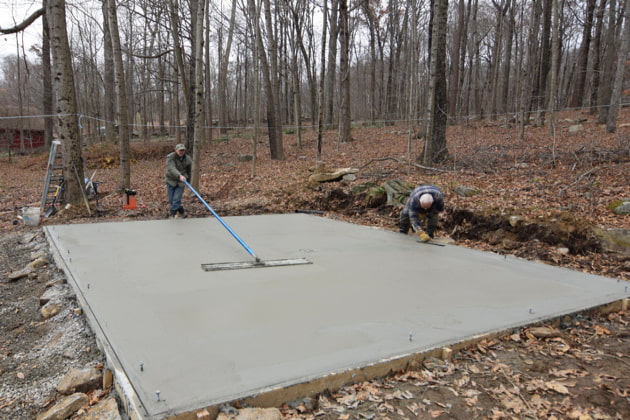
Connecticut sugarmakers fighting new food law
Peter Gregg | January 25, 2019
COLUMBIA, Conn.—A new state law has sugarmakers in a panic and an effort is underway to convince the state legislature to rewrite it.
“It could be arbitrary,” said Mathew Wilkinson, a sugarmaker in Columbia, Conn. who is spearheading a campaign to convince the legislature to revise the state’s so-called “Cottage Food Law” to address concerns of maple.
As it stands now, the law sets up an inspection process for small scale sugarmakers making candy or cream in their home or sugarhouse kitchens. Advocates say this will benefit the industry by giving consumers confidence that they’re getting clean and safe products made in a wholesome foodmaking facility.
“It helps mom & pop operations,” Wilkinson said.
But the law does not address maple specifically and if taken literally, it could force all production, including syrupmaking, to occur in a state approved “kitchen” which in turn could mean that all sugarhouses will come under state inspection and could be forced to comply with regulations for kitchens. [ MORE ]




















